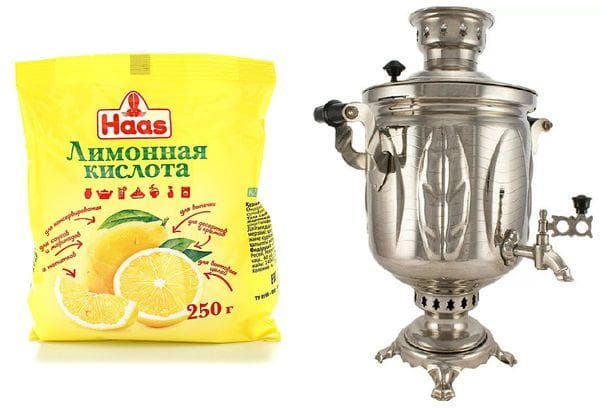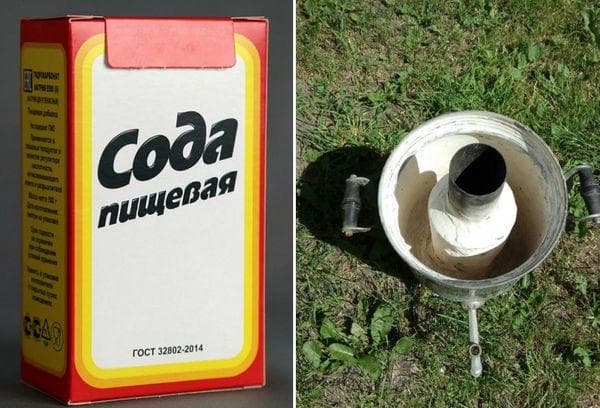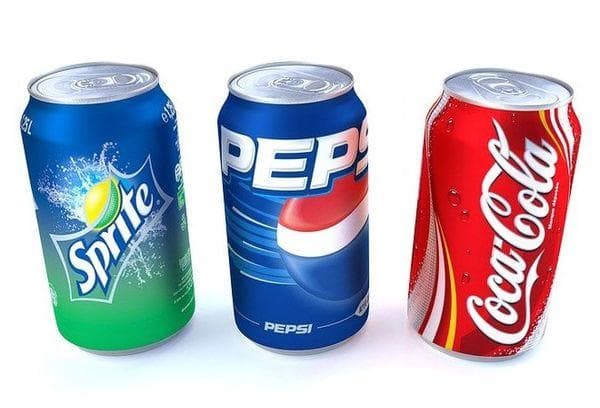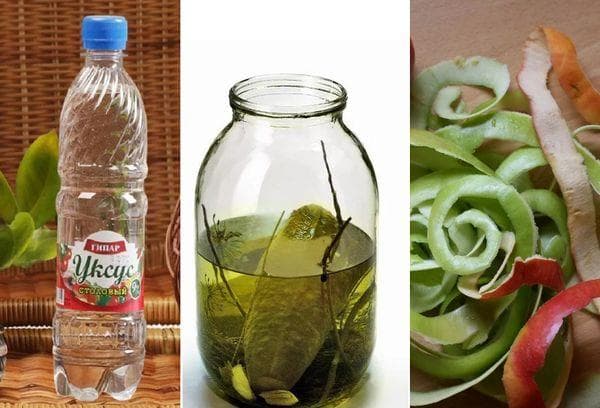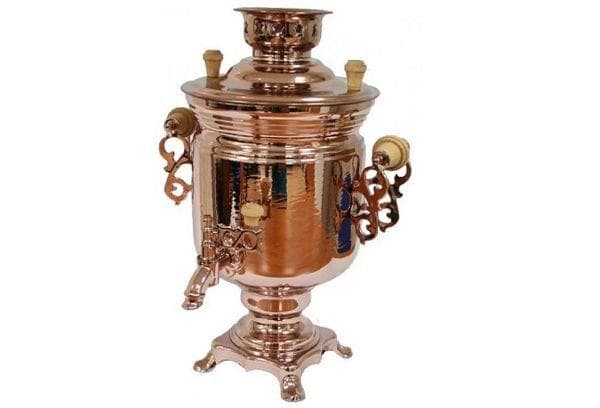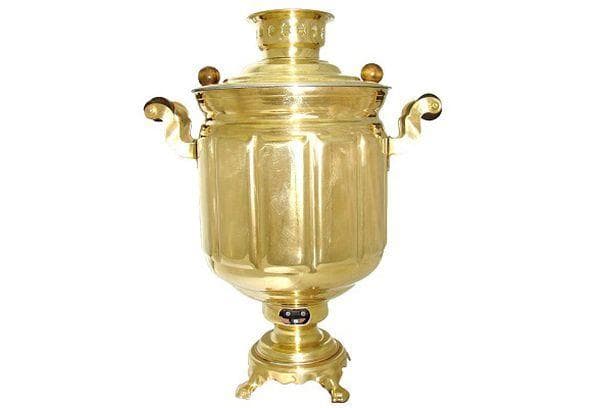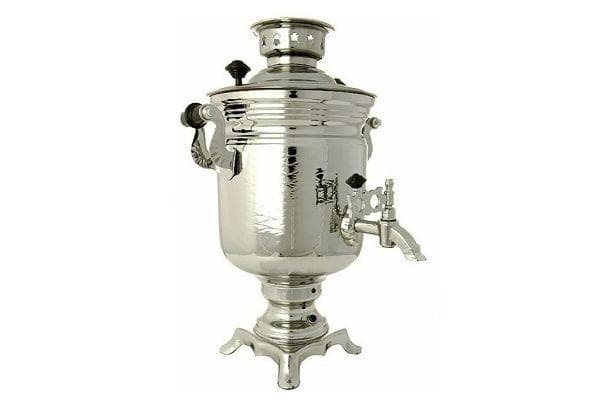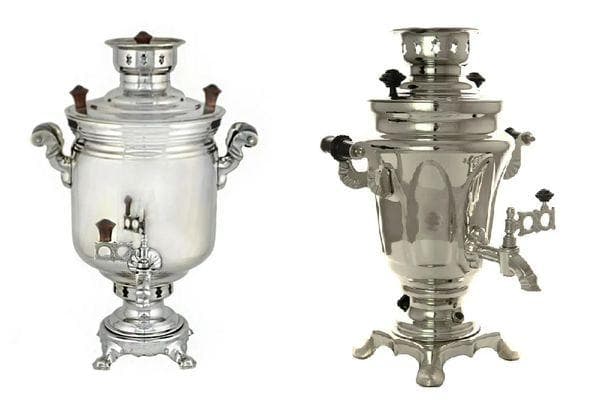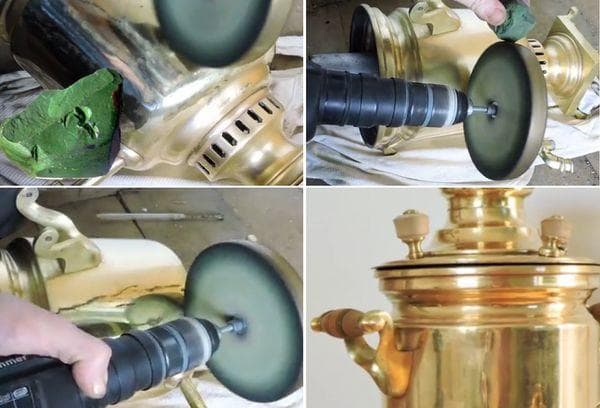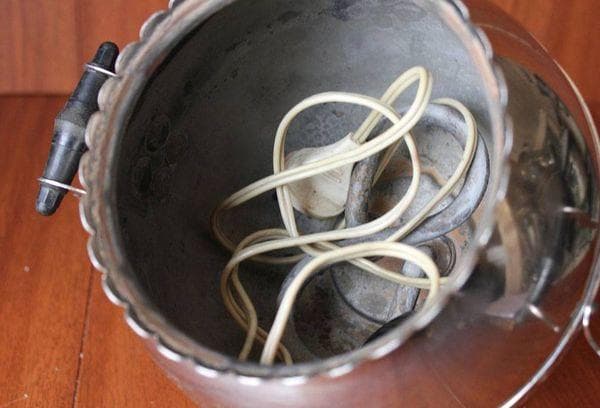How to clean a samovar until it shines inside and out? Secrets of proper cleaning for all types of samovars
Content:
Cleaning the samovar is easy. It's much harder not to ruin it. The wrong cleaning agent, too aggressive a solution or the wrong chemical can result in scratches and permanent stains on the metal.
Contaminants must be removed correctly.
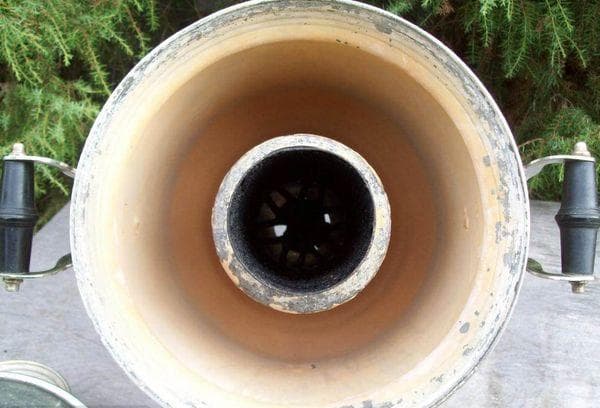
How to clean the inside of a samovar
When water boils, a durable white coating forms on the walls of the samovar. It consists mainly of calcium salts, sometimes interspersed with iron, chlorine, magnesium and other elements of the periodic table. It looks ugly and is also harmful to health.
You can clean the inside of the container from scale in different ways.
Lemon acid
The classic folk method is simple, fast, economical. All you need is a packet of citric acid and clean water.
- Fill the samovar 1/3 full. Dissolve citric acid in water and boil the solution.
- Leave the samovar for 8-10 hours so that the scale dissolves.
- Drain the dirty water and rinse the container thoroughly.
Usually one procedure is enough to completely clean the walls of scale. But if you see that a white coating remains, repeat the procedure 2-3 times. Eventually the calcium salts will completely dissolve.
Special anti-scale products
Sachets or bottles of cleaning products are sold in any supermarket in the household chemicals section.
Typically, the manufacturer recommends diluting the substance in a certain amount of cold water and boiling it in a kettle. The concentration and boiling time are indicated in the instructions for the drug.
Special remedies are more effective than homemade ones, but can be toxic. After cleaning, the samovar should be thoroughly rinsed with dishwashing detergent.
In addition, such means are quite aggressive. Read the drug label carefully: it may be intended only for plastic teapots or stainless steel appliances. A samovar made of non-ferrous metal will hopelessly ruin such a product.
Soda
Baking soda helps with light plaque.
- Fill the samovar halfway with water and boil.
- Pour 3 s into a container. l. soda and let the water cool.
For more complex cases, the solution can be strengthened. Add 1 tbsp there. l. vinegar. But this composition foams a lot - be prepared for this.
Cola, Pepsi, Sprite
And other sodas containing phosphoric acid. Such drinks quickly and safely dissolve calcium deposits, but are gentle on the metal.
To remove salt deposits:
- Open the drink bottle and wait for all the gas to dissipate. When boiling, it will give a powerful foam that will overflow the edges and fill everything with sticky sweetness. You definitely don't want this.
- Fill the samovar ½ full.
- Boil the drink and leave in the container for 3-4 hours, or overnight.
- Pour off the soda and rinse the sides with clean water. If plaque remains, repeat the procedure.
After such cleaning, a distinct smell of the drink remains in the samovar. Don't be alarmed - in a couple of days it will completely disappear. In addition, the slight smell of soda does not interfere with drinking tea. Some people even like it.
Vinegar, cucumber pickle, fruit peeling
These products also remove plaque, but the smell after them remains powerful and lasts a long time. If you are not ready for this, use less “fragrant” options.
Dissolve 100 vinegar in 1 liter of water. Fill the samovar halfway, boil and leave overnight.
Simply pour the cucumber brine into a container, boil and leave until it cools. Get ready for the living room, bedroom, and balcony to smell like “cucumbers” in the process. After such an experiment, you will have to wash the samovar several times, and always with detergent.
Place the fruit peelings in a samovar, add water and boil. The result will be something like a very thick sour compote. Fruit acid will clean the metal.
How to clean a samovar until the outside shines
On the outside, samovars rust, darken and become scratched. But you need to not only remove dirt, but also keep the outer surface smooth and shiny.
Each metal has characteristics that need to be taken into account when working.
Copper samovar
Inspect the container carefully. It should not have a gray-green coating either inside or outside. The rough greenish coating is copper oxide and is very toxic.
To remove such stains and clean the metal:
- Mix coarse salt, flour and vinegar in equal proportions.
- Take a soft cloth and rub the walls of the samovar.
- Rinse off the cleaning paste and inspect the metal.If there are any stains left, rub them again with flour and salt.
- Rinse the container with acidified water and polish with a soft cloth.
Individual stains can be wiped with lemon juice or a solution of citric acid - 10 g per 100 ml of water. After this procedure, the metal becomes golden and shiny.
Brass samovar
Old brass loses its shine and turns black in places. To remove dark plaque:
- Mix water and vinegar in equal proportions. Add as much salt to the solution as you need. Apply the cleaning mixture to the walls of the samovar and leave for a few minutes. When the plaque dissolves, rinse the brass samovar with clean water.
- Soak a cotton swab or cloth in acetone. Rub it over the brass. After completing the procedure, wash the container with dishwashing detergent.
- Use oxalic acid solution: 200 ml per 10 liters of water. Or find a cleaner that contains oxalic acid. Just read the labels on household chemicals - you'll probably find something. This is a popular ingredient among manufacturers.
You can use ordinary hot vinegar. It cleans brass well - the smell during operation will be unpleasant.
Rust is removed from brass with a mixture of tooth powder, ammonia and water. Make a viscous paste and apply to the rust stain. After 1-2 hours, remove the mixture. If rust remains, repeat the procedure.
Wipe the cleaned metal thoroughly with a napkin.
Stainless steel samovar
The only drawback of this metal is that over time it becomes covered with dark spots. You can remove them with regular 9% vinegar. Simply wipe the container, rinse and polish with a cloth.
Perhaps you have stainless steel household appliances - and special cleaning products for such metal.They can also be used - but only outside. Such preparations are too toxic for internal surfaces.
Nickel-plated and chrome-plated samovars
This is the most sensitive and capricious option.
Never use acids or limescale removers! The coating will react with them and turn black.
You can use special products for cleaning nickel-plated and chrome-plated surfaces - they are sold in the household chemicals section. As a last resort, wipe the samovar with a cotton swab dipped in saline or soda solution.
To remove serious stains, mix 1 tbsp. l. grape or apple cider vinegar and 1 tsp. salt. Wipe the dark spots with the resulting solution and rinse the metal.
Hard abrasives should not be used. Avoid metal brushes, sandpaper and sand polishing. At best, you will scratch the surface; at worst, you will scrape off the nickel or chrome plating, exposing the base.
You can clean the samovar with crushed chalk.
Rust from a nickel-plated or chrome-plated container is removed using animal fat. Use fish oil, butter or lard. Apply the grease to the stain, leave it for a couple of days, and then wipe with a cloth soaked in ammonia. This method is used even for nickel-plated and chrome-plated samovars.
How to polish a samovar
Harsh abrasives should not be used. They will leave noticeable scratches on a smooth metal surface.
To polish a samovar, use:
- GOI paste. This product is sold in hardware stores. Apply the paste to a soft cloth and gently rub the surface with gentle movements until it shines. Then rinse and wipe with a cloth.
- A mixture of tooth powder and 10% ammonia. Make a paste, apply a little to the surface and rub lightly with a cloth. To remove the composition, simply wipe the samovar with a damp cloth.
- Special products for polishing non-ferrous metals. They are sold in auto stores. Apply the product according to the instructions, wipe with a cloth - and the samovar will shine like new. But don't forget to wash the container thoroughly. Remember: these products are not intended for dishes, but for cars.
- Powdered chalk. The softest and most ineffective way. It is used for very sensitive but not contaminated surfaces.
Some dull areas can be polished with toothpaste. Choose not bleaching, but the most common toothpastes - they do not contain abrasives.
Tinning a samovar at home
If you are restoring an antique samovar to boil water in it, be sure to look inside. Do you see a dark film inside that covers the surface of the metal? These are harmful oxides. They need to be removed.
To do this, the samovar is tinned - that is, covered with a protective film of tin. It's easy to do:
- Polish the inner bowl with fine sandpaper and rinse thoroughly.
- Rub the inside of the samovar with soldering acid or ammonia.
- Place the bowl on the fire and melt some soldering tin there. Choose pure metal without impurities.
- Shake the container, distributing the liquid metal along the walls. You can “smear” it with flax fiber, but be careful - the temperature of straightened tin exceeds 230 OWITH.
- Repeat the procedure until the inner bowl of the samovar is covered with a layer of metal of the same thickness.
In the same way, you can tin any internal surface of the samovar that comes into contact with water.
How to prevent scale from appearing
If a white coating constantly appears in your samovar, it means the water is too hard. It contains a lot of mineral salts, and believe me, this is not “Essentuki” at all. If you drink such water constantly, your teeth will deteriorate and problems with your stomach, liver and kidneys will begin. To prevent this from happening:
- Buy clean bottled water.
- Install a quality water filter.
Inexpensive models remove only mechanical contaminants: fine suspension, rust, tiny particles of debris. But you need a softening filter or reverse osmosis filter. Such models are more expensive and more difficult to install.
How to properly care for your samovar
To ensure that the samovar serves you for many years:
- Do not leave a hot samovar without water.
- Lubricate the key tap with edible fat.
- If you store the samovar in a cold place, be sure to drain all the water from it.
And do not touch the samovar with your bare hands. Wear gloves or use oven mitts. A thin coating of fat that is found on human skin “sticks” to the metal and over time turns into dark spots and oxides.
